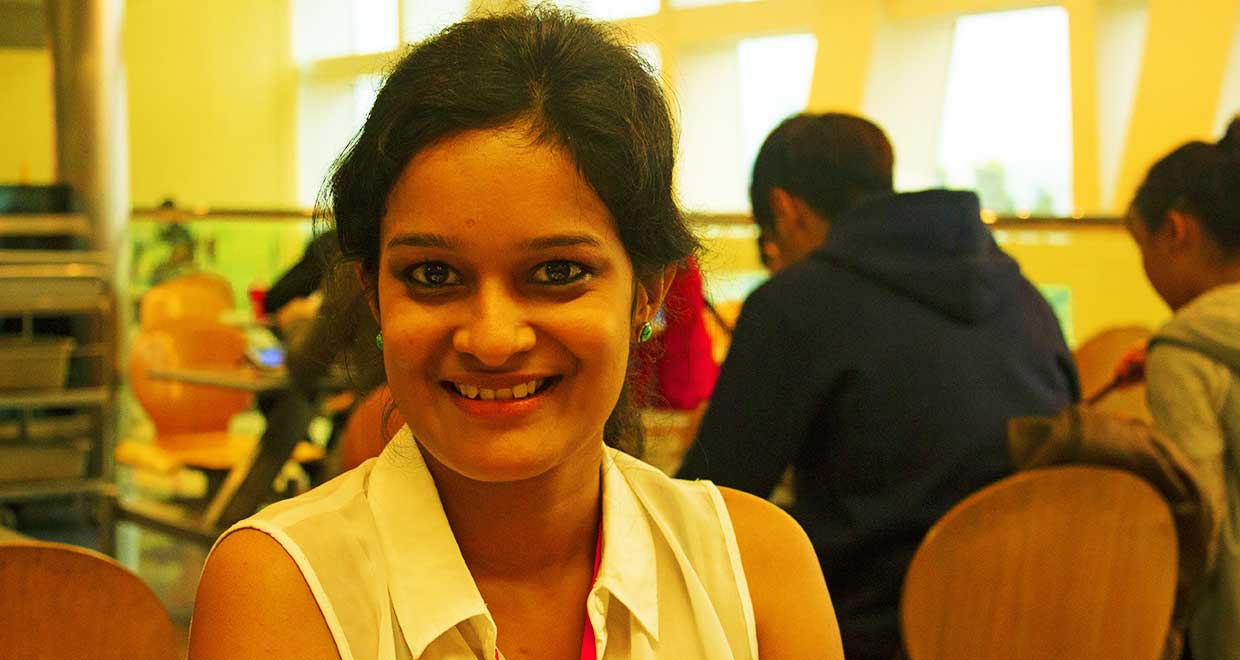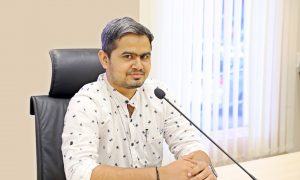 Stuti Shrivastava is currently a student of NLIU, Bhopal and shall graduate in 2015. She has an enviable academic record and has an excellent series of internships at top law firms. She has participated in various moot court and debate competitions. Her diligence paid off when she received a job offer from WIPRO.
Stuti Shrivastava is currently a student of NLIU, Bhopal and shall graduate in 2015. She has an enviable academic record and has an excellent series of internships at top law firms. She has participated in various moot court and debate competitions. Her diligence paid off when she received a job offer from WIPRO.
In this interview, she talks about:
- Importance of mooting
- Securing top-notch internships
- Recruitment process at WIPRO
How would you like to introduce yourself to our readers?
I am currently pursuing my final year in Law from National Law Institute University, Bhopal. I would be joining Wipro next year. I would take this opportunity to reach out to the readers of SuperLawyer and share my experience as a law student and the opportunities thereafter.
Why and when did you decide to do law? What interested you most about the subject at the time?
I decided to pursue Law while I was in high school. It was just a couple of years back that the format of CLAT had been introduced for five year law courses. While deciding my career options, a five year law course seemed a good choice, firstly, because the demand for lawyers was on the rise and still is, and secondly, because there are a lot of avenues open for a lawyer as far as both private & public sectors and independent practise are concerned.
How would you describe your time at NLIU-Bhopal?
At NLIU, Bhopal we follow a trimester system which gets a little hectic sometimes. It might get slightly difficult to go through all the projects, mid-terms and end terms every trimester. But if you have a nice group of people to hang out with, college life at NLIU is really fun. I always had good friends here and that is what made my time here so great. I also learned a lot through academic and co-curricular activities like mooting.
One can find it difficult to manage continuous evaluation through trimester exams, projects submissions, etc. How did you manage to keep up your grades?
Honestly, I am not really at the top of the class as far as grades are concerned. However, I have always managed decent grades by studying a few days before exams. I don’t think there is a universal mantra for scoring well. It’s very subjective. Some students study all through the trimester while others study a night before the exams. However, students should be mindful that they do not enter ‘the vicious cycle of repeats’.
Your internships at law school have all been with top tier firms. Our readers would be quite curious to know how you went about securing these internships.
I acquired internships either through independent applications or through the college recruitment committee. While applying independently, I always made an effort to apply well ahead of time at various firms and to stay in touch with the HR department.
How relevant did you find your law school education with the kind of work you were required to do at law firms?
The laws that we study at law school form the basis of all the work that we do at law firms. Having said that, the practical scenarios that we face at internships are far different from the theoretical situations taught to us at law school. At internships, we are required to look into the practical application and interpretation of laws.
Did you learn any skills while interning? What are these skills and how did you acquire them?
I think the most important skills that I learned at internships were the analysis and practical application of laws. I acquired these skills by researching on practical legal situations and by analysing the interpretation and application of laws in such situations. Every assignment that I was given involved a new query which required me to thoroughly understand the law its application.
You have participated in various moot court competitions including Willem C. Vis (East) international commercial arbitration moot, tell us how important is mooting and what effect does it have on one’s CV?
Legal Education is not just about theoretical knowledge but also about practical application of law. Mooting helps a student get a taste of practical scenarios and assists in development of analytical skills. When mentioned in a CV, it shows that the student is not merely engaged in classroom activities but also makes an effort to branch out and participate in other co-curricular activities. Additionally, International moots like Willem C. Vis give the students an opportunity to interact with law students and jurists from top universities all over the world.
How helpful do you think is mooting for a law student? Does it serve a real purpose or is just another way to crowd up the CV?
Apart from developing analytical skills, mooting also helps in the development of oratory skills and in instilling confidence in the student. It is also a good way of acquiring research skills and increasing one’s pool of knowledge. In addition, the competition is a very good platform for meeting other law students from various universities and it facilitates exchange of ideas.
Apart from mooting and academics what other co-curricular activities did you engage yourself in?
I have participated in seminars and presented a legal paper.
What do you have to say about mooting at law school and legal writing for journals? Are these activities that help with development of real world skills and do they have any ‘bonus’ value when seeking jobs?
These activities certainly help a student in expanding his/her horizon of knowledge and legal skills. Also, while seeking jobs, these activities go on to show the interviewer that the student is a keen learner and is versatile.
Recently, you bagged a job offer as in-housel counsel at WIPRO. How did you go about achieving this?
I read up on all the assignments that I had mentioned on my CV and made sure that I knew them in and out. I also read up the basic laws and prepared the most anticipated HR questions.
Please tell us about the recruitment process at WIPRO?
The recruitment process was spread over a period of 2 days. On the first day we had an extempore and two rounds of interviews where we faced different interviewers. We were asked both, general legal questions and CV related questions. At the end of the day we were also given some legal and other assignments. On the second day we had a single round of interview where we were asked personality assessment based questions.
Tell us about your interview? What kinds of questions were asked by the interview board? Any tips on how one should go about framing a C.V. and prepare for an interview?
On the first day, I was asked basic legal questions and CV related questions along with HR questions. There were some questions based on general knowledge. The interview on the second day was solely based on personality assessment questions.
One should always make sure that the assignments mentioned in the CV are precise and that there are no frivolous points in the CV. Preparing all the anticipated questions before the interview is always helpful.
There is a phenomenal obsession amongst law students with maintaining a very high CGPA. How important according to you is this in securing a job?
Grades are important but they are not the only thing that helps in a job interview. Thorough and clear understanding of the areas that one has worked in and is very important. Apart from knowledge, interviewers also look for other qualities in students like confidence, versatility, ability to work in a team and capacity to handle pressure. Students should also work towards developing these skills.
Many people believe that working as an in-house counsel affords more work-life balance and is less demanding. Would you agree?
Having interned at various law firms, I have firsthand experience of how demanding life is at such firms. In most of the places you are often required to work late and there is always high pressure to finish assignments on deadlines. In comparison to that, the job of an in-house counsel is not as demanding and therefore, it may provide a better work-life balance.
Lastly, what would be your message to our readers?
I would like to ask all the law students to not restrict their outlook as far as career after law is concerned. They should intern at different places and participate in various co-curricular activities before they decide to settle down on anything. Also, along with academics they should try and have fun with their friends and make good memories in college.


























